COP26: What deal has been made at the climate change conference in Glasgow?
- Published
- comments
COP26: What happened over the last two weeks at the climate conference?
For the past two weeks, more than 100 world leaders gathered in Scotland to discuss the most urgent issue facing this planet - climate change.
COP26 was an opportunity for nations from across the globe to agree on a way to limit the devastating impacts of climate change.
And on late Saturday evening, a deal called the Glasgow Climate Pact was made final.
But what has been agreed over the past two weeks? Read on to find out.

What are the biggest promises of the Glasgow Climate Pact?
For many, it's a historic deal - the first ever to set out a plan to reduce the use of coal globally.
Coal is one of the most polluting fuels in the world.
In 2020, coal was responsible for nearly 14 billion tonnes of global carbon dioxide emissions, according to research from the Global Carbon Budget.
That's 40% of the world's total carbon dioxide emissions for 2020.
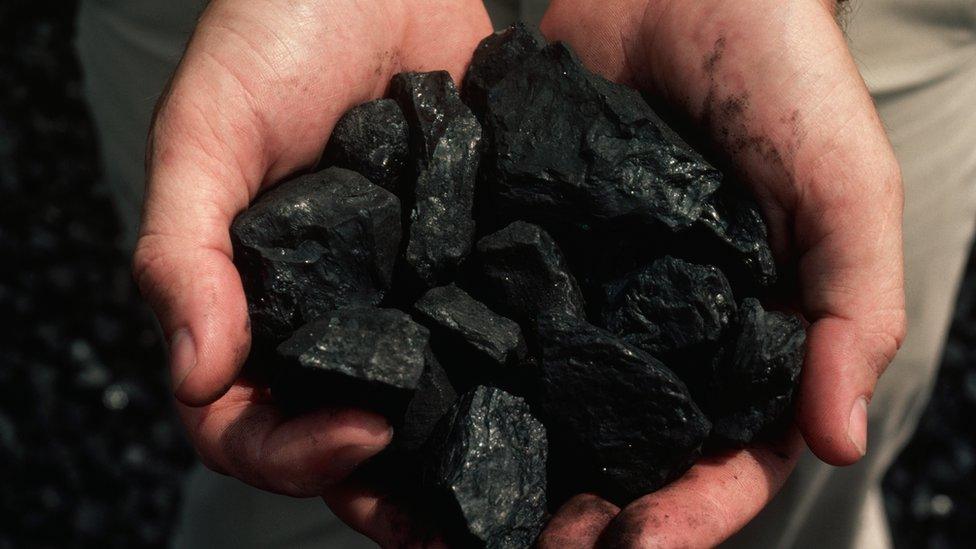
Wealthy countries like Australia and the United States still heavily rely on coal as a fuel source, and the pressure will now be on them to find alternatives.
But India and China challenged the original idea of "phasing out" the use of coal completely.
They argued this would be impossible for developing countries that can't afford alternative sources of fuel or more fuel efficient technologies.
What have people said?
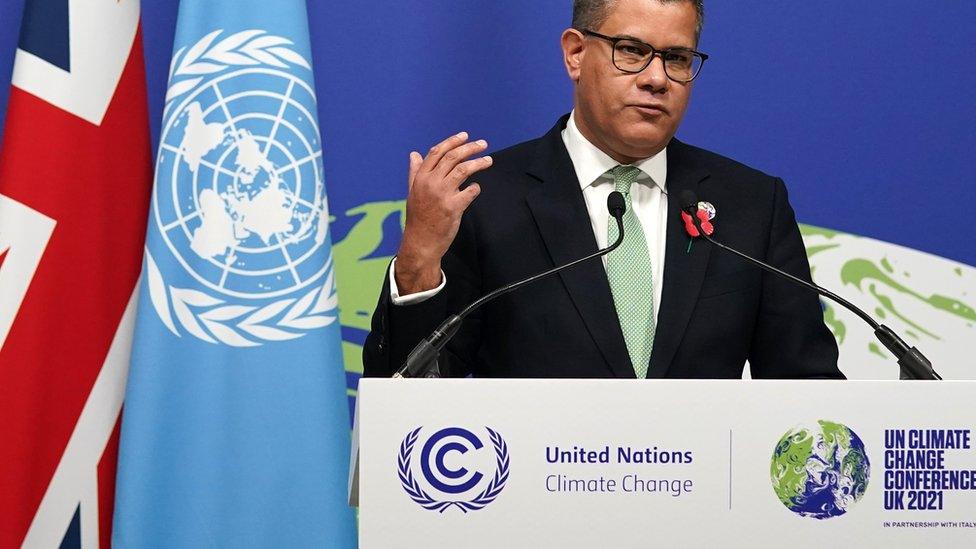
Alok Sharma, COP26 President, gave the closing speech at the conference
There's been a mixed response to the COP26 conference.
Critics have said the deal does not go far enough and will not meet the key summit goal of limiting global warming to 1.5C by the end of the century.
UK Prime Minister Boris Johnson commented: "There is still a huge amount more to do in the coming years.
"But today's agreement is a big step forward and, critically, we have the first ever international agreement to phase down coal and a roadmap to limit global warming to 1.5 degrees."
'Tinged with disappointment'
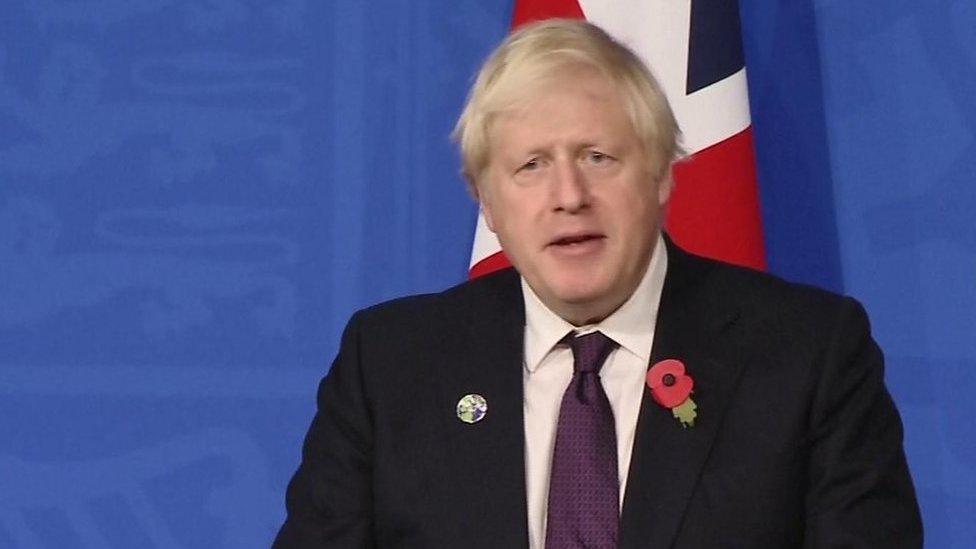
However, during a Downing Street news conference on Sunday evening, Mr Johnson said: "We can encourage, but we cannot force sovereign nations to do what they do not wish to do.
"For all our disagreements, the world is undeniably heading in the right direction" but he added "the fatal mistake now would be to think that we in any way cracked this thing."
Mr Johnson said that despite the achievements of the summit, his reaction was "tinged with disappointment" and COP26 President Alok Sharma was disappointed in this outcome, saying he was "deeply sorry".
Lia Nicholson, delegate for Antigua and Barbuda, and speaking on behalf of small island states, said: "We recognise the presidency's efforts to try and create a space to find common ground. The final landing zone, however, is not even close to capturing what we had hoped."
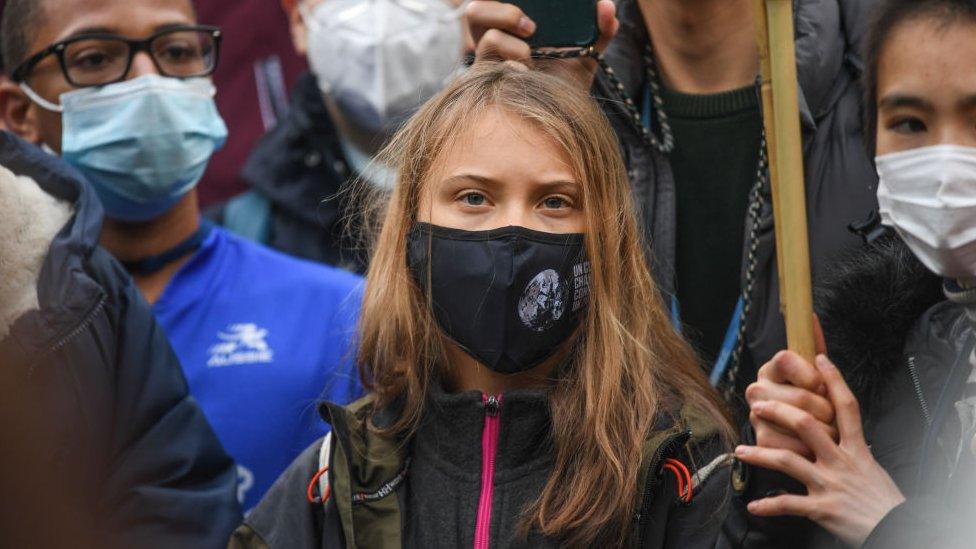
Greta Thunberg at a protest in Glasgow on the opening day of the conference
The US representative on climate change, John Kerry, said it was always unlikely that COP26 would end the climate crisis, saying instead that a "starting pistol" had been fired.
While UN Secretary General Antonio Guterres felt less hopeful, commenting: "We are still knocking on the door of climate catastrophe... it is time to go into emergency mode - or our chance of reaching net zero will itself be zero."
And climate advocate Greta Thunberg took to Twitter just hours after COP26 finished to share her thoughts.
"The #COP26 is over. Here's a brief summary: Blah, blah, blah," she wrote. "But the real work continues outside these halls. And we will never give up, ever."
What else was agreed at Glasgow?
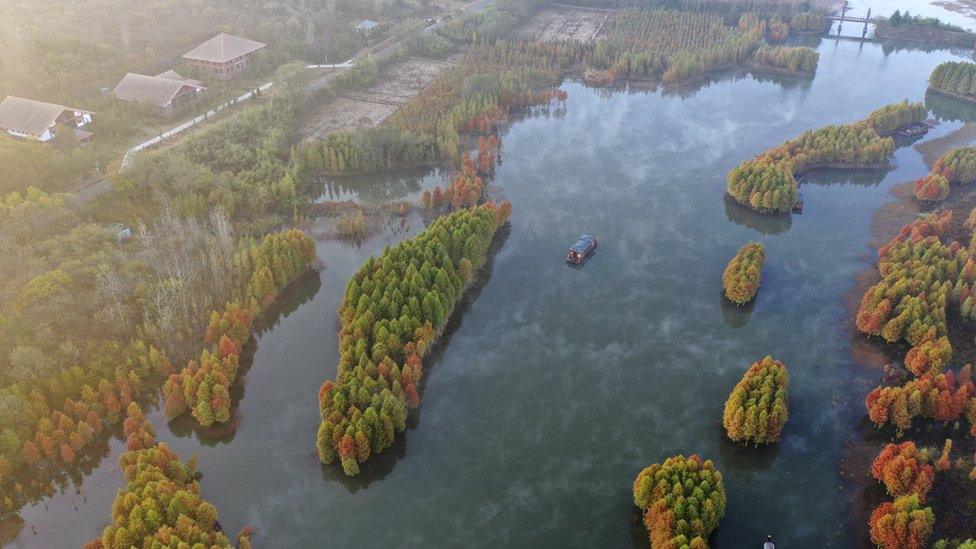
Other promises were made during the COP26 conference.
1. Trees
Leaders from more than 100 world countries, which represent about 85% of the world's forests, have promised to stop deforestation - the cutting down of trees - by 2030.
Trees are vital to reducing carbon dioxide in the atmosphere, and are an important habitat and resource for billions of animals.
The Amazon Rainforest is often referred to as the planet's lungs, because of the amount of carbon dioxide it can absorb and convert into oxygen.
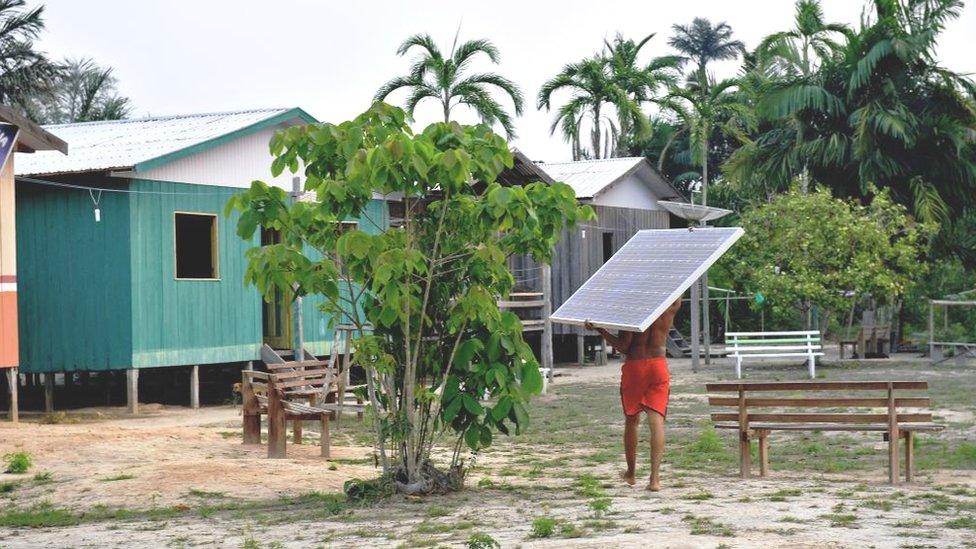
2. Money
While switching to greener fuel sources and more sustainable lifestyles is better in the long run, it will have a massive financial impact on many nations who do not have the money or resources of wealthier countries like the UK and the United States.
The Paris Climate Agreement asked for these wealthier, sometimes called 'developed', countries to pledge $100 billion a year (around £750 million) from 2020 towards supporting countries with more limited funding for green initiatives.
But the amount given in 2020 fell far short of that target.
COP26 asked wealthier countries to dig deeper into their pockets and offer more financial support, beyond this first target.
And further to this, 450 financial organisations have agreed to fund more responsible, "clean" technology like renewable energy instead of fossil fuels.
3. Emissions
More than 100 countries have agreed to cut methane emissions by 30% by 2030.
Methane is thought to be responsible for a third of human-made global warming.
But some of the world's biggest methane polluters - China, India and Russia - have not signed up to this agreement.
Greenhouse gases, like methane, trap heat in the Earth's atmosphere, like a blanket warming the planet. Although there's more Carbon Dioxide (CO2) in the atmosphere and it sticks around for longer, methane released into the atmosphere has a more powerful warming effect than CO2.
4. Relationships
The US and China have not always been on the friendliest terms, so there was some surprise when it was announced a plan to work together during COP26.
Their joint commitments include a promise to cut emissions, as well as regular meetings to "address the climate crisis" over the next decade.
The first meeting is expected to take place this week.
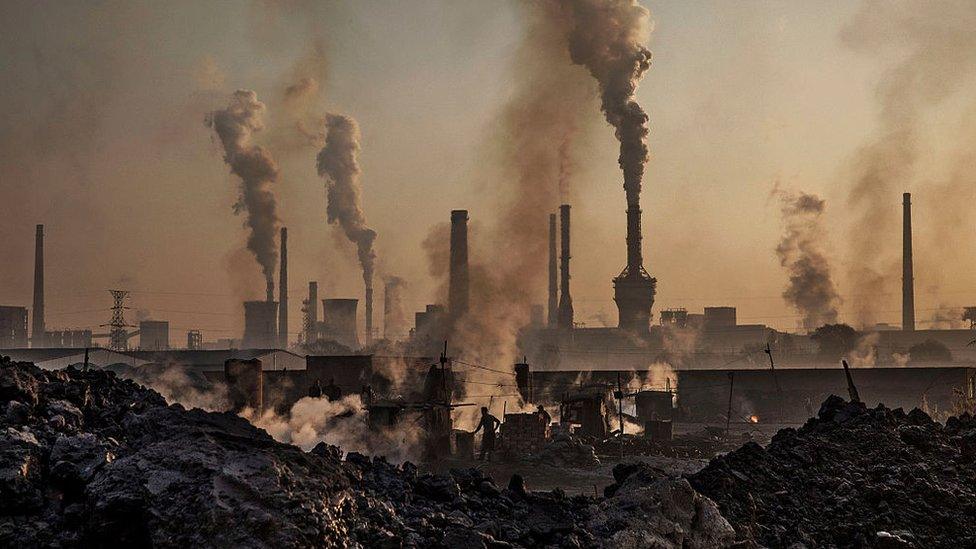
China and the US are some of the world's biggest polluters
China and the US are some of the world's biggest polluters.
In 2019, they were responsible for 40% of the world's carbon emissions, according to the Emissions Database for Global Atmospheric Research.
It's hoped that this agreement between the two nations will not only reduce their level of emissions, but will improve their relationship as well.

Who makes sure that these countries and businesses will keep their promises?
A good question - but not one with an easy answer!
For the most part, many of these agreements are not legally binding.
This means that countries are expected to hold themselves accountable to the promises they've made.
It's hoped that the increasingly worrying impacts of climate change will be enough to motivate them to meet their targets.
But some environmental campaigners have little faith in the promises made at meetings like COP26.
What happens next?
Each country must publish their plan to reduce their national emissions by the end of next year.
Another meeting will be arranged next year to discuss the targets and how they can be improved.
The next conference, COP27 will be held in Egypt in 2022 and it's hoped leaders from across the world will keep their promises and work hard towards fighting climate change.
- Published9 November 2021

